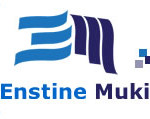In the digital world, keywords and links often pop up in content regarding search engine optimization (SEO). Most people know that these factors are integral to a digital marketing campaign. They are considered crucial ranking factors because search engines, like Google and Bing, continue to use them to determine the quality of a web page and its content. Backlinks, or links coming from external sources directing traffic to your website, are deemed as votes of confidence on the information that your domain provides.
So what’s the significance of keywords? They’re actually really important! Firstly, the right keywords will ensure that your site comes up near the top of the search engine results page when someone is looking for something within your niche. Keywords help to identify you, your business and your website, and set you apart from the competition. The right words will ensure that you get noticed, which translates into traffic, conversions, and all being well, more customers.
This means that you’re likely to get a favorable spot on the search engine results pages (SERPs) if many authors cite your website as a source when creating their own content. On a side note, you should conduct a website audit regularly to ensure that you’re getting high-quality backlinks.
Because of this, keywords can be considered as one of the primary driving sources towards increasing your site’s relevance. Just think about it for a moment. When you’re using your main keyword in your headline, for instance, do you feel like the potential customer is reading information that’s relevant and up-to-date to them? When it does, then you can be confident that this visitor will continue browsing through your site. Eventually, an initial visit can develop into years of loyal custom.
Meanwhile, the primary use of keywords is for both search engines and human users to discover your content. You may have heard the phrase “keywords are dead”, which may seem logical with the rise of users’ preference for visual content, like images and videos.
However, it’d be more accurate to say that keyword spamming is dead since there was a time when people attempted to manipulate the system by stuffing their pages with keywords without providing value to human readers. Now, SEO specialists would need to make sure that they’re incorporating these key terms and phrases in the right context.
The key here is for you to meet that delicate balance between just having single keywords and a number of relevant phrases. When done correctly, multiple keywords can greatly enhance your site’s competitiveness. Just make sure that you use them strategically.
Keywords still matter a lot in SEO. Read on to know why.
How Human Users Utilize Keywords
First, you need to understand how human web users use keywords. Search engines operate by having people type in their query using words, which then serve as a guide for Google’s or Bing’s algorithm to deliver accurate results.
Search engines also have crawlers to skim through your website’s content. This is the primary reason that you need to have so many articles with the same keywords, without being too redundant. Doing this can help increase your chance of being recognized by the search engines.
You can’t really find an answer to something without asking a question first. This is what makes keywords useful for SEO.
If you want to achieve a highly coveted spot on the first page of the SERPs, you’ll have to find words that are relevant to your industry and incorporate them into your content. You can even use a keyword difficulty tool to assess how challenging it’d be for your site to rank for a particular term or phrase.
If you’re unsure of how to properly do this, you can always hire a professional SEO agency to help you. They’ll take all of the relevant keywords that’ll suit your particular niche and pair them with articles that will be strategically optimized around those keywords. Not only will you gain the reader’s attention, but you’ll also increase the number of potential sales. The investment you make in these experts will return promising results.
Keywords help you deliver your content to people who might be interested in your content at the time when they need it the most. With the right string of words, you can boost brand awareness and increase your reader base.
How Search Engines Use Keywords
Search engines use keywords like a librarian would utilize the Dewey Decimal System. Again, Google or Bing would match the words in your query with the keywords found in millions of pages. Then, after sifting through their index with lightning speed, they can pull up links that contain relevant content.
Search engines have also become more intelligent. Unlike before, where they can only conduct exact matches, these platforms now utilize AI-driven technology to understand user intent as well. With this, they can interpret queries more accurately within the right context.
Keywords aren’t going away anytime soon. The way that people use them might change, like the growing preference for long-tail keywords due to the rise of voice searches. But, they will remain to be a crucial SEO factor.
Two Major Types Of Keywords
Additionally, you should know that there are different types of keywords, not just the ones found within the content’s body. You must be aware of them to know how to optimize each of your web pages:
1. On-Page
These keywords are the ones that are visible to the web user. For instance, the words and phrases located in-content fall into this category. It also includes page titles, headings, subheadings, and meta descriptions. If you have a readable URL, which is highly recommended, the words in the link are also called on-page keywords.
2. Off-Page
On the other hand, off-page keywords are more for the benefit of search engines. Factors in this group are more difficult to manipulate. They also provide information on the general consensus on the quality of your pages. Anchor text, the relevance of the linking domain, as well as the co-occurrence between a site and a set of keywords are the elements that are included in this category.
Conclusion
Keywords, along with links, comprise the digital world. People type in their queries, and search engines use them as a reference to ensure that they deliver relevant results. To boost your SEO, you should know the different types of keywords. Make sure to optimize these elements to improve your brand’s visibility to your target audience for better conversions.

